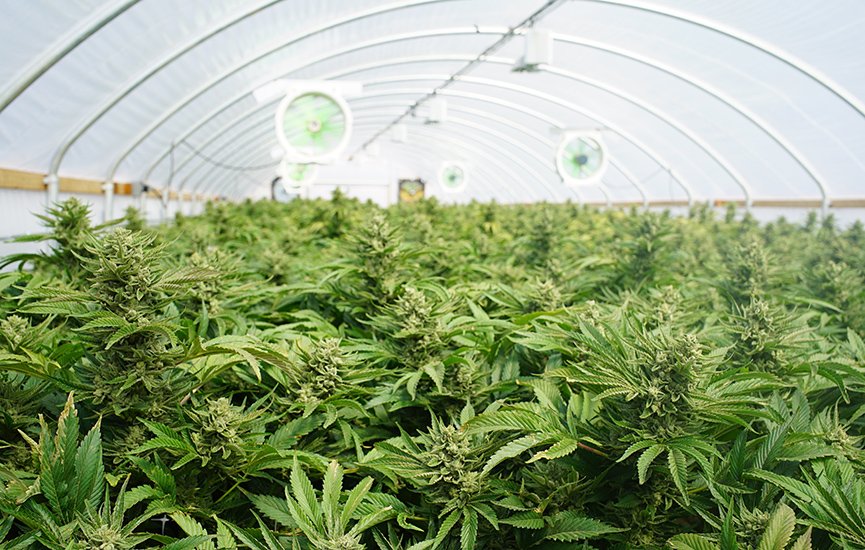Election day radically transformed the landscape of the national cannabis industry. While there was substantial progress toward legalization at the state level, some industry insiders worry that the new administration of Donald Trump and a Republican majority in both houses of Congress may endanger parts of the legal cannabis industry.
Nine states had ballot initiatives to legalize cannabis on November 8, either for medical or recreational use. The only one that did not pass was a recreational initiative in Arizona, but this was a small setback for the industry since major economic centers such as California—the world’s sixth largest economy—and Massachusetts passed their own recreational initiatives. Florida became the first state in the South to legalize medical cannabis.

“You’ve now got the majority of states with some form of legal cannabis,” says Michael Auerbach, lead investor of cannabis firm Privateer Holdings. “It’s a sea change in the future of legalized cannabis in this country and globally…Trump voters decidedly voted to approve cannabis in their states. This is an issue that is not Republican or Democrat; this is a bipartisan issue.”
According to an October report from the Pew Research Center, 57 percent of Americans support the legalization of marijuana. “This is marijuana’s moment,” says Troy Dayton, CEO of Arcview, a cannabis investment group. Arcview estimates the latest ballot initiatives will increase the legal market by $7.4 billion by 2020.
Yet excitement over a renewed green-rush is tempered by the outcome of the presidential election: Although president-elect Donald Trump has hinted that he might not be opposed to legalization, and even favors medical cannabis, a Republican-controlled Congress will probably be against ending national recreational prohibition. And a lack of concrete policy proposals from Trump during the campaign is leaving cannabis investors looking for clarity. “We have an administration that is unpredictable,” Auerbach says. “My concerns around cannabis are the same concerns I have around my portfolio of other investments. All investors are nervous when there is uncertainty. Candidate Trump, the way he talked about policy—when he did talk about policy—was not clear and was confusing to investors like myself.”

Moreover, there are fears that if Trump appoints a social conservative as Attorney General, the Justice Department might seek to block the new markets or reopen prosecution of recreational cannabis businesses. “The election is very, very dangerous right now for the recreational industry,” says Rob Hunt, president of medicinal cannabis research company Teewinot Life Sciences. There is a risk that an anti-cannabis Justice Department “would go into statehouses and say, ‘Don’t even think about going into rule-making right now. Don’t expend any efforts on this because we will come in with full force and take this thing down,’” says Hunt.
Hunt also cautions that the Justice Department under a Trump administration could seek to bring lawsuits against legal cannabis businesses. While there are rules that currently prevent the Justice Department from expending federal funds on these sorts of prosecutions, they might succeed in driving smaller companies out of business before they won on appeal, putting a chill on the entire industry.
“No one wants to put their money into something that they think the Feds are going to come in and take,” Hunt says. “Mitigate downside risk, right? Acting on that side of it, the threat is enough. They don’t need to do much more than say, ‘We are instructing our prosecutors to go full tilt at recreational programs.’”
If the Justice Department did pursue this tactic, it would probably go after recreational businesses in California, given the state’s overall importance to the legal cannabis market. “If you get the California market off the ground, and it starts really producing revenue, then all of a sudden you’ve got enough deep-pocketed individuals in the industry with a real interest to protect with lobbying dollars. And this fight [to end federal prohibition] then becomes real,” Hunt says.
Even those who are generally sanguine about the prospects for legal cannabis under Trump harbor worries. “It would be political suicide to go after this hugely popular issue,” says Dayton. “That being said—no one actually knows how he is going to govern on any issue.” He puts his hope in the fact that an increasing number of congressmen now represent states with legal cannabis. They will “want to protect the right of their state to make its own laws.”







